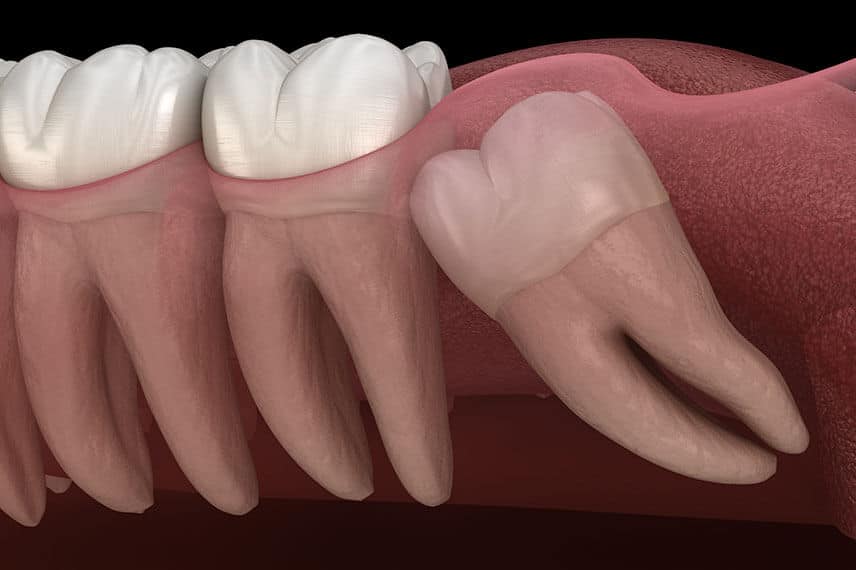
We all want our teeth to be in their best condition whether in shape, color, or alignment, but sometimes, some teeth undergo a condition called impaction, but what does that mean?
The word impaction means lodgment of something which results in its fixation, and if we applied this to our teeth, teeth become impacted if they don’t erupt naturally but instead remain in a wrong position in the jaws.
Actually, as a result of the teeth being stuck in the gums or the bones, many problems can occur, but first, let’s know more about the causes that may lead to our teeth being impacted.
A fact to know is that the most impacted teeth are the wisdom and canines.
Tooth impaction may result from:
1-Small jaws: When the jaw size is not enough for the teeth, teeth won’t find a space to erupt and thus remain in their place and impaction occurs.
2-Crowding: In some cases, the jaws are already crowded, having supernumerary extra teeth so no more space is found for the erupting tooth which is most probably the wisdom teeth.
3-Large teeth: Many already have large teeth that take up a larger space than they should, so no more space will be available for the erupting tooth.
4-Displaced or deformed teeth: For teeth to erupt normally, they shouldn’t be twisted, deformed, or displaced as that prevents them from following their normal path of eruption, and therefore their final right destination won’t be reached.
If you have impacted teeth, there are some important information you should know, at the beginning, it’s important to know the effects of these conditions on the impacted tooth and all surrounding teeth in general.
It’s better to know that tooth impaction often doesn’t have any symptoms but in many cases, it causes serious problems:
1- It can cause a misaligned bite: Due to the pushing effect of the impacted tooth on other teeth, a misaligned bite and functional problems result.
2-It may lead to gingival inflammation and periodontitis: As when a tooth partially erupts, it traps plaque, bacteria, debris, and food around it, which leads to inflammation of the soft tissue and pericoronitis in addition to bone loss.
3-It can cause tooth decay: Tooth decay of the impacted tooth and surrounding teeth is a common finding as when more retentive areas are present, more bacteria and food entrapment is found, and therefore caries easily occurs.
As we said before, you may be lucky, and your impacted tooth doesn’t cause you any symptoms, but be aware, it can cause some annoying ones:
1-Pain in gums and jaws.
2-Prolonged Headache.
3-Unpleasant taste when biting.
4-Redness and swelling of the gums.
5-Swelling of lymph nodes.
6-Difficulty opening the mouth.
Don’t panic if you have an impacted tooth, just visit The Good Dentist, and Dr. Ostromecki will make an x-ray to confirm the diagnosis and prescribe over-the-counter painkillers also warm saline will be very soothing to your gums.
In many cases, symptoms persist and the only treatment becomes the extraction of the impacted tooth, and that’s should be done by our team at The Good Dentist. Give us a call at 262-538-0892 if you think you are having a problem with impaction.

